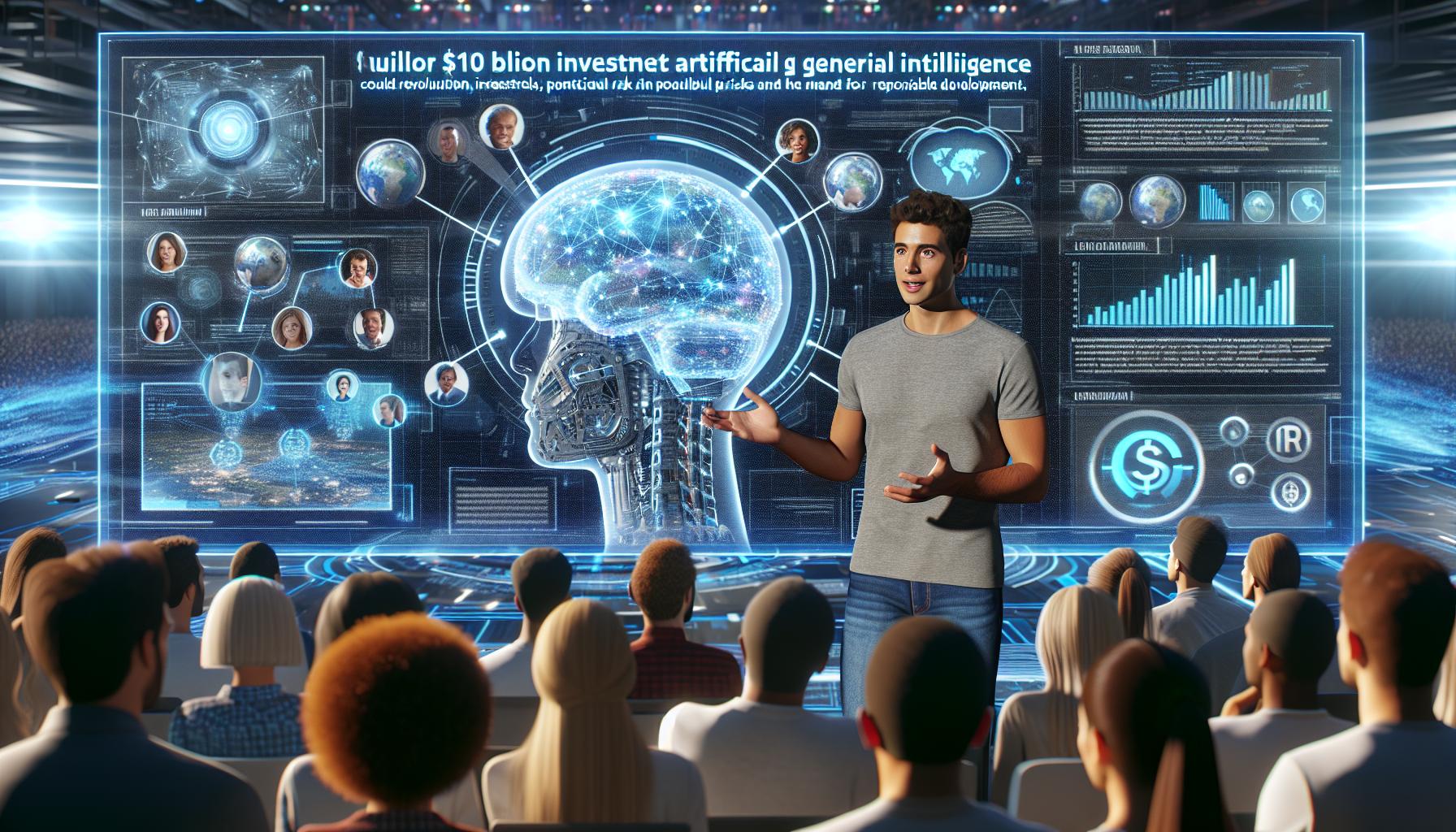Mark Zuckerberg Invests $10 Billion in Development of Artificial General Intelligence
Mark Zuckerberg, the CEO of Meta (formerly Facebook), recently announced on Instagram that his company will be investing over $10 billion in the development of Artificial General Intelligence (AGI). AGI refers to artificial intelligence that can match or surpass human capabilities across various tasks that require cognitive abilities. In his recorded message, Zuckerberg stated, “It’s clear that the next generation of services requires building full general intelligence, building the best AI assistants, AIs for creators, AIs for businesses and more that needs services in every area of AI.”
The Promise and Potential of Artificial General Intelligence (AGI)
Unlike current AI systems, which are highly specific and lack the ability to comprehend nuance and context as effectively as humans, AGI has the potential to solve problems in a wide range of environments. AGI systems aim to mimic the key features of human intelligence, particularly in the areas of learning and flexibility. An essay published in EMBO Reports in 2019 highlights that AGI could possess the ability to adapt and learn in diverse scenarios, making it a groundbreaking technology with far-reaching implications.
AGI: A Game-Changer in the Field of Artificial Intelligence?
The development of AGI could mark a significant milestone in the field of artificial intelligence. AGI systems have the potential to outperform humans in complex and cognitively demanding tasks, revolutionizing industries such as healthcare, education, and business. The ability to comprehend and analyze vast amounts of data and make informed decisions would greatly enhance efficiency and productivity. However, achieving AGI also raises questions about the potential risks and ethical considerations associated with its deployment.
The Debate Surrounding AGI: Mitigating Risks and Ensuring Responsible Development
The concept of AGI has sparked a contentious debate among experts and industry leaders. Some view AGI as a technology that could pose existential risks to humanity if not developed and deployed responsibly. Concerns have been raised about the potential for AGI to outpace human control and potentially lead to unintended consequences. Several prominent figures, including OpenAI CEO Sam Altman and Microsoft founder Bill Gates, have emphasized the need for collective action to mitigate the risks associated with AGI, much like other societal-scale risks.
Meta Doubles Computing Power for AGI Development: What’s Next?
In his Instagram announcement, Zuckerberg revealed that Meta is purchasing 350,000 Nvidia H100 graphics processing units (GPUs), significantly bolstering the company’s computing power for AI training. These GPUs are crucial for training state-of-the-art AI models. By the end of the year, Meta aims to have a massive computing infrastructure equivalent to 600,000 H100 GPUs. This investment highlights Meta’s commitment to pushing the boundaries of AGI development and marks a significant milestone in their ongoing research.
With this increased computing power, Meta is currently training its answer to ChatGPT and Google’s Gemini, known as “Llama 3.” Zuckerberg has also teased a future roadmap that includes the development of a full AGI system. The progress made by Meta and other companies in the AGI space will undoubtedly shape the future of AI and have far-reaching implications for various industries and society as a whole.
*Subscribe to our newsletter to receive the world’s most fascinating discoveries delivered straight to your inbox.*
Author: Keumars Afifi-Sabet
Keumars is the technology editor at Live Science. He has written for a variety of publications including ITPro, The Week Digital, ComputerActive and TechRadar Pro. He holds a BSc in Biomedical Sciences, and has worked as a technology journalist for more than five years.
Analyst comment
Positive news: Mark Zuckerberg investing $10 billion in AGI development shows a commitment to advancing AI technology. This will likely attract other companies to invest and accelerate the progress of AGI. The market for AI-related technologies and services is expected to grow significantly as AGI development continues to evolve.













